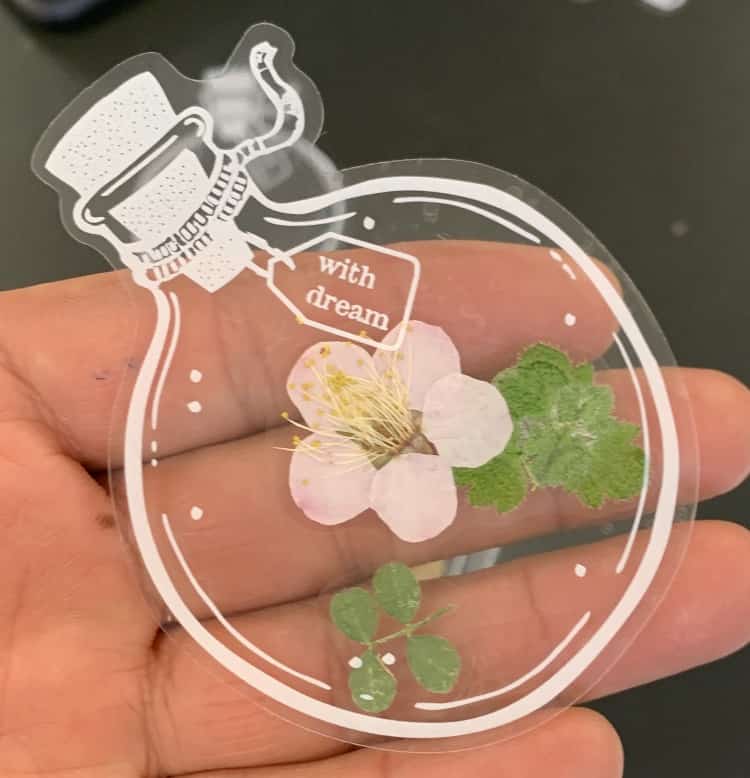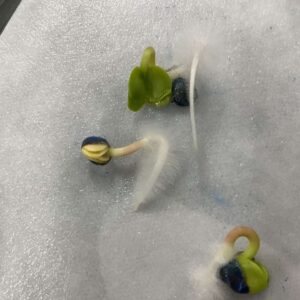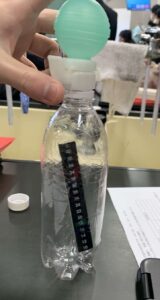From Hot Pot to Hot Science: Turn Your Electric Grill Pan into a Laboratory’s Constant Temperature Bath
I’m Kuwako Ken, your Science Trainer. Every Day is an Experiment.
It’s an ethereal sight, almost like snow falling inside a test tube. Have you already tried the “Ammonium Chloride Recrystallization” experiment that I introduced previously?
The way the sparkling crystals dance and fall is so beautiful you can lose yourself watching it. This experiment is highly recommended for home enjoyment, as it doesn’t use dangerous chemicals and the materials are easy to get. Check out this article for the details:
Lowering the Experiment Hurdle: The Smart Heat Source Solution
In chemistry experiments, we frequently encounter steps like “heating a substance to dissolve it,” as with this recrystallization, or heating to observe a change of state. Textbooks typically use gas burners or alcohol lamps, but using an open flame in your living room is a bit challenging, right? Concerns like “difficulty controlling the heat” or “danger of tipping it over” might cause people to hesitate before trying the experiment.
The revolutionary item that solves this problem, taught to me by science education specialist Mr. Eiji Komori, was none other than an “Electric Jar (Rice Cooker)”.
The idea is to fill an old rice cooker with hot water, set it to the “keep-warm” mode, and place your test tube inside to heat it. Essentially, you use it as a safe “water bath (Bain-Marie)” apparatus. This way, you can maintain a constant temperature without using an open flame.
The “Ultimate Lab Tool” Discovered by a Science Teacher
The electric rice cooker is certainly a convenient, fantastic idea—lower burn risk and easier to implement than a gas burner. However, I didn’t have a spare one at home, and few students I asked owned one either. While searching for a substitute, my eyes fell upon an appliance collecting dust in the back of my own shelf. “This is it!” I thought. It was an Electric Pot (Grill Pan).
An electric pot allows for fine temperature control, from warming to heating, and has a wide, user-friendly opening. Convinced, I immediately donated one to the school science lab and introduced it.
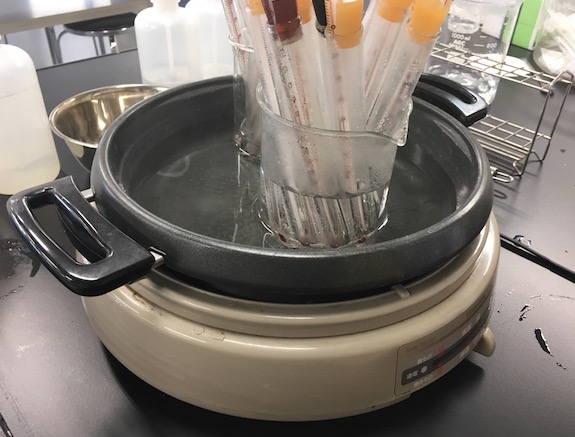
I use the Zojirushi Electric Pot.
An Excellent Stand-In for a Laboratory’s “Constant Temperature Bath”
In practice, it became a huge hit even in the science lab. In scientific experiments, the apparatus used to maintain a substance at a fixed temperature is called a constant temperature bath; the electric pot functions perfectly as a simple version of this.
Three Reasons Why the Electric Pot is Ideal for Experiments:
Easy Temperature Control: It can be preheated or kept at a steady warmth, making it easy to standardize conditions for experiments like solubility studies.
High Safety: Originally designed for tabletop cooking like hot pot or yakiniku, it has a sturdy guard around the edges and a structure that keeps the exterior from getting too hot.
Excellent Stability: Its flat shape means you don’t have to worry about it tipping over, unlike a gas burner or alcohol lamp.
As shown in the photo, you can fill the electric pot with water to create a hot water bath and place test tubes in a beaker inside it for heating. Direct heating can risk sudden boiling (bumping) or even cracking the glass, but this “water bath method” heats the substance gently, making observation easier and the process much safer.
Conclusion: Enjoy Science with What You Have in Your Kitchen
When conducting experiments at home, be sure to utilize this “Electric Pot.” Since it uses no open flame, you can focus on the experiment safely, reducing the worry of burns even when working with small children. While it’s certainly handy as a piece of lab equipment, it’s also a star at home parties for hot pot or yakiniku (^^) Why not start by enjoying a delicious meal cooked in the pot, and then follow up by having the whole family enjoy a “White Christmas” with the ammonium chloride recrystallization experiment?
Science isn’t just something that happens in special places. Finding creative ways to use everyday tools is a crucial part of scientific thinking!
Inquiries and Requests
Bring the wonder and fun of science closer to home! I’ve put together easy-to-understand tips and fun science experiments you can do at home. Feel free to search for my other articles!
The content from the Science Notebook is now available as a book. Find out more here
Information about the operator, Kuwako Ken, is here
For various requests (writing, lectures, experiment classes, TV supervision/appearances, etc.), click here * Article updates are distributed on X (Twitter)!
![]() The Science Idea Channel posts experiment videos!
The Science Idea Channel posts experiment videos!
3月のイチオシ実験!
- 押し花を作ろう!:梅や桜の花の押し花を作ってみましょう。特別なケースに入れると、長く保存できて、しおりにもなります。
テレビ番組・科学監修等のお知らせ
- 「月曜から夜更かし」(日本テレビ)にて科学監修・出演しました。
- 2月27日放送予定「チコちゃんに叱られる」(NHK)の科学監修しました。
書籍のお知らせ
- 1/27 『見えない力と遊ぼう!電気・磁石・熱の実験』(工学社)を執筆しました。
- サクセス15 2月号にて「浸透圧」に関する科学記事を執筆しました。
- 『大人のための高校物理復習帳』(講談社)…一般向けに日常の物理について公式を元に紐解きました。特設サイトでは実験を多数紹介しています。※増刷がかかり6刷となりました(2026/02/01)
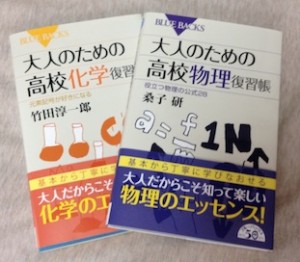
- 『きめる!共通テスト 物理基礎 改訂版』(学研)… 高校物理の参考書です。イラストを多くしてイメージが持てるように描きました。授業についていけない、物理が苦手、そんな生徒におすすめです。特設サイトはこちら。
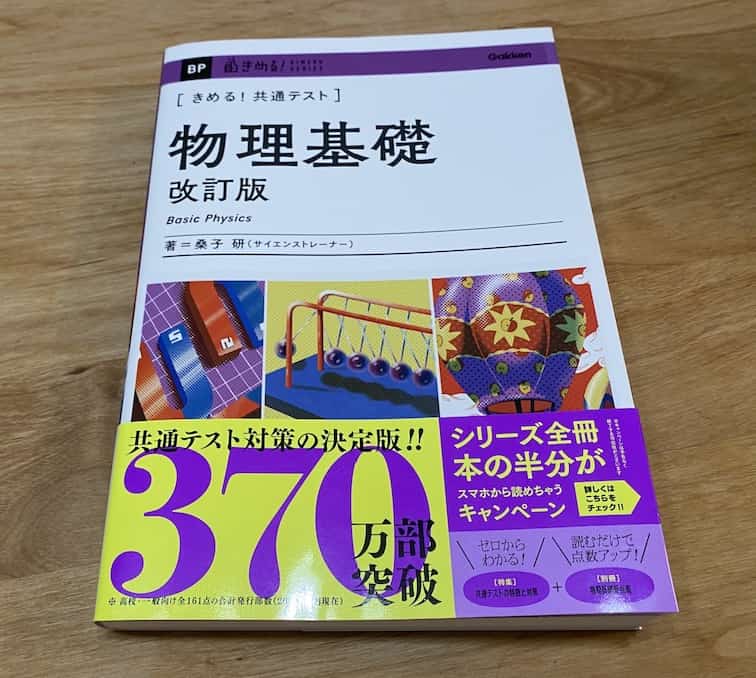
講師・ショー・その他お知らせ
- 3/20(金) 日本理科教育学会オンライン全国大会2026「慣性の法則の概念形成を目指した探究的な学びの実践」について発表します。B会場 第3セッション: 学習指導・教材(中学校)③ 11:20-12:20
- 7/18(土) 教員向け実験講習会「ナリカカサイエンスアカデミー」の講師をします。お会いしましょう。
- 10/10(土) 秘密兵器「帯電ガン」が炸裂!ビリビリ!ドキドキ!静電気サイエンスショー@千葉市科学フェスタ(午後予定)
- 各種SNS X(Twitter)/instagram/Facebook/BlueSky/Threads
Explore
- 楽しい実験…お子さんと一緒に夢中になれるイチオシの科学実験を多数紹介しています。また、高校物理の理解を深めるための動画教材も用意しました。
- 理科の教材… 理科教師をバックアップ!授業の質を高め、準備を効率化するための選りすぐりの教材を紹介しています。
- Youtube…科学実験等の動画を配信しています。
- 科学ラジオ …科学トピックをほぼ毎日配信中!AI技術を駆使して作成した「耳で楽しむ科学」をお届けします。
- 講演 …全国各地で実験講習会・サイエンスショー等を行っています。
- About …「科学のネタ帳」のコンセプトや、運営者である桑子研のプロフィール・想いをまとめています。
- お問い合わせ …実験教室のご依頼、執筆・講演の相談、科学監修等はこちらのフォームからお寄せください。

